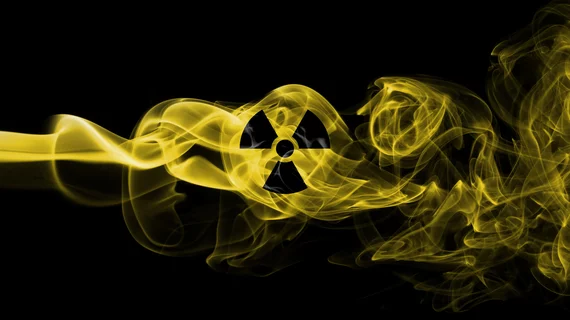‘Growing concerns’ over interventional radiologists’ radiation exposure during certain procedures
South Korean scientists are warning interventional radiologists about potential exposure to radiation during certain procedures, according to an analysis published Monday.
Researchers specifically cited “growing concerns” around fluoroscopy-guided treatment, which can subject physicians to partial-body radiation high enough to cause harm. Author Younghyun Lee and colleagues recently conducted a survey and gathered blood samples from 52 rads, sharing their work in European Radiology.
“Our findings suggest that interventional radiologists had greater chromosomal damages than those in other occupational groups, and their partial-body exposure levels might be high enough to cause local damage,” Lee, with the Korea Institute of Radiological and Medical Sciences in Seoul, and co-authors wrote April 19.
For the analysis, Lee et al. quizzed radiologists about their work history and collected blood samples for dicentric chromosome assay—an established lab test to estimate ionizing radiation exposure. They determined that rads had a higher number of dicentrics than both the general population and industrial radiographers. The level of partial-body exposure may be high enough to cause occupational local damage, such as skin cancer in fingers, they noted.
“Use of special dosimeters to monitor partial-body exposure, as well as restricting the time and frequency of interventional procedures, could help reduce occupational radiation exposure,” the authors advised.
You can read more about their findings in European Radiology here.

